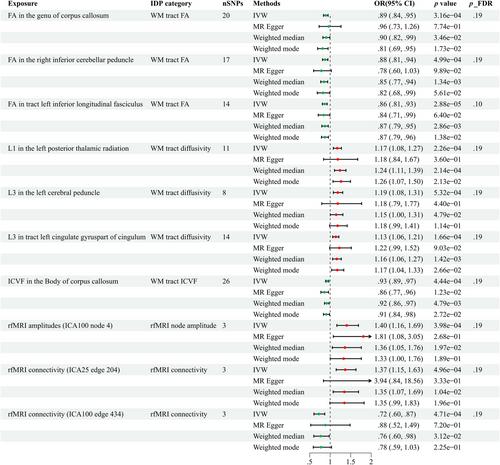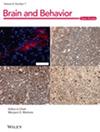Epilepsy, a complex neurological disorder, is closely linked with structural and functional irregularities in the brain. However, the causal relationship between brain imaging-derived phenotypes (IDPs) and epilepsy remains unclear. This study aimed to investigate this relationship by employing a two-sample bidirectional Mendelian randomization (MR) approach.
The analysis involved 3935 cerebral IDPs from the UK Biobank and all documented cases of epilepsy (all epilepsies) cohorts from the International League Against Epilepsy, with further validation through replication and meta-analyses using epilepsy Genome-Wide Association Studies datasets from the FinnGen database. Additionally, a multivariate MR analysis framework was utilized to assess the direct impact of IDPs on all epilepsies. Furthermore, we performed a bidirectional MR analysis to investigate the relationship between the IDPs identified in all epilepsies and the 15 specific subtypes of epilepsy.
The study identified significant causal links between four IDPs and epilepsy risk. Decreased fractional anisotropy in the left inferior longitudinal fasciculus was associated with a higher risk of epilepsy (odds ratio [OR]: 0.89, p = 3.31×10−5). Conversely, increased mean L1 in the left posterior thalamic radiation (PTR) was independently associated with a heightened epilepsy risk (OR: 1.14, p = 4.72×10−5). Elevated L3 in the left cingulate gyrus was also linked to an increased risk (OR: 1.09, p = .03), while decreased intracellular volume fraction in the corpus callosum was correlated with higher epilepsy risk (OR: 0.94, p = 1.15×10−4). Subtype analysis revealed that three of these IDPs are primarily associated with focal epilepsy (FE). Notably, increased L1 in the left PTR was linked to an elevated risk of hippocampal sclerosis (HS) and lesion-negative FE, whereas elevated L3 in the left cingulate gyrus was associated with HS-related FE.
Our research offers genetic evidence for a causal link between brain IDPs and epilepsy. These results enhance our understanding of the structural brain changes associated with the onset and progression of epilepsy.



